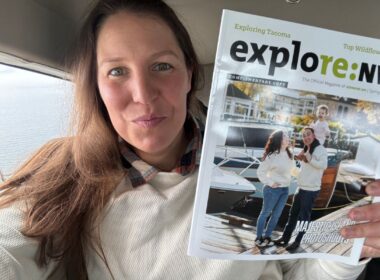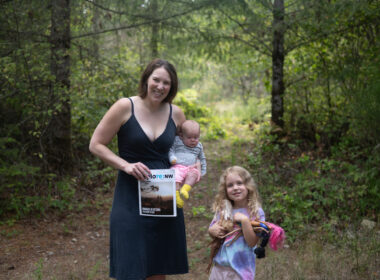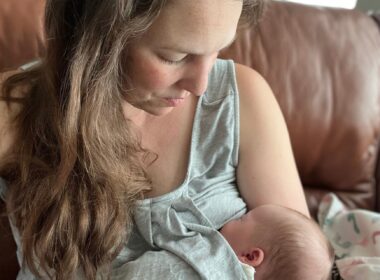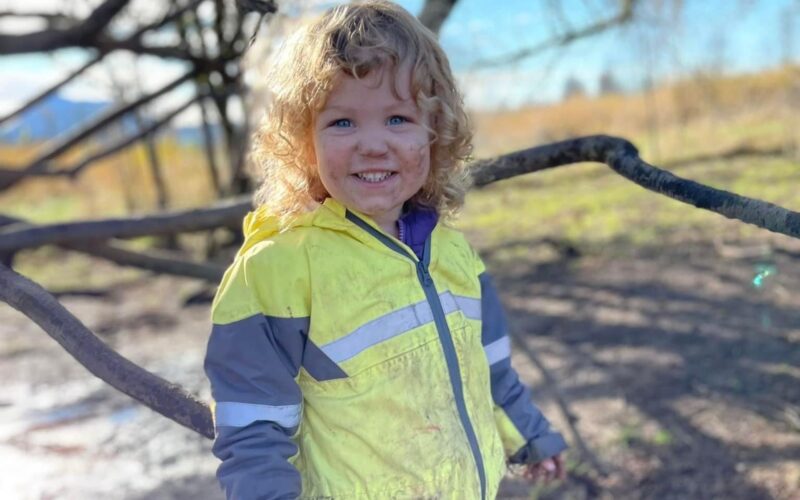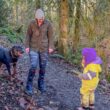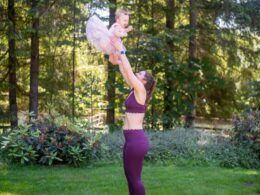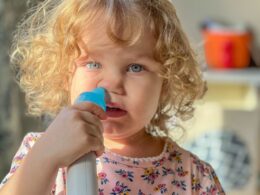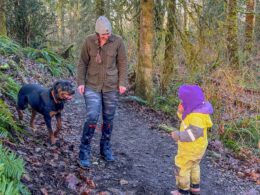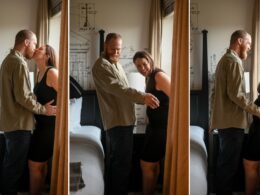There’s no roadmap to perfect parenting — as much as I sometimes wish there was. Every family and kid is different. We all have different needs, wants, and opportunities. The following is NOT advice or judgment about another parent’s decision.
It is simply an account of how we personally weighed the pros and cons of sending our toddler to preschool. Because the decision wasn’t easy and there was no one right answer. (Though I do happen to think we chose the right answer for our child and our family.)
Why am I sharing? Because as a parent, I’ve found hearing about the experiences of other parents has helped broaden my own. They help me consider perspectives I may have never even thought about. I hope ours do the same for you.
How Old Should Your Toddler Be When They Start Preschool?
According to the Center for Disease Control (CDC), preschool-aged toddlers are between three- and five years old. That being said, the right age for starting preschool will vary from child to child.
We choose to send our daughter to preschool slightly before her second birthday. Her class was primarily made up for 3- to 5-year-olds, with a few younger kids mixed in.
Was Pepper capable of learning the same things as the older kids when she started school? Kind of. She grasped some of the concepts. But educational development — in the traditional sense of letters and numbers — wasn’t our main concern.
As a ‘pandemic baby,’ she didn’t have many opportunities to socialize, especially with kids similar in age. Our primary concern was to put her in a place where her imagination could flourish, and her social skills (such as sharing) could be developed.
Because she was so young, and I have the freedom to be mostly in mom mode, we don’t send her full time. Rather she goes two, half days a week. For us, this has proved a fabulous balance between time with other kids and being able to relish this limited time we have together while she’s still little.
Can We Afford Preschool?
Preschool is not free. And it can be expensive. According to TOOTRis, the average cost of childcare in 2021 in Washington State was $18,237 a year (or $1,519.75 per month). That’s a heavy burden for many parents.
There are two primary questions to consider when wondering if you can afford preschool:
- Does your family have enough extra discretionary money to cover the cost?
- Can you make enough while your child is in school to cover or offset the cost of preschool?
A couple of things to keep in mind.
- The numbers stated above are averages. You may find a preschool you love that costs less.
- The numbers stated above are for full-time preschool. You may not want your child in full-time preschool. Depending on the school, if you send your child to fewer days and/or half days, they may offer you a reduced rate.
Does the cost still not pencil out? This doesn’t mean you are out of options. Most communities have a variety of alternatives to traditional preschools, such as mommy-and-me dates where kids have the opportunity to socialize while their parents are present.
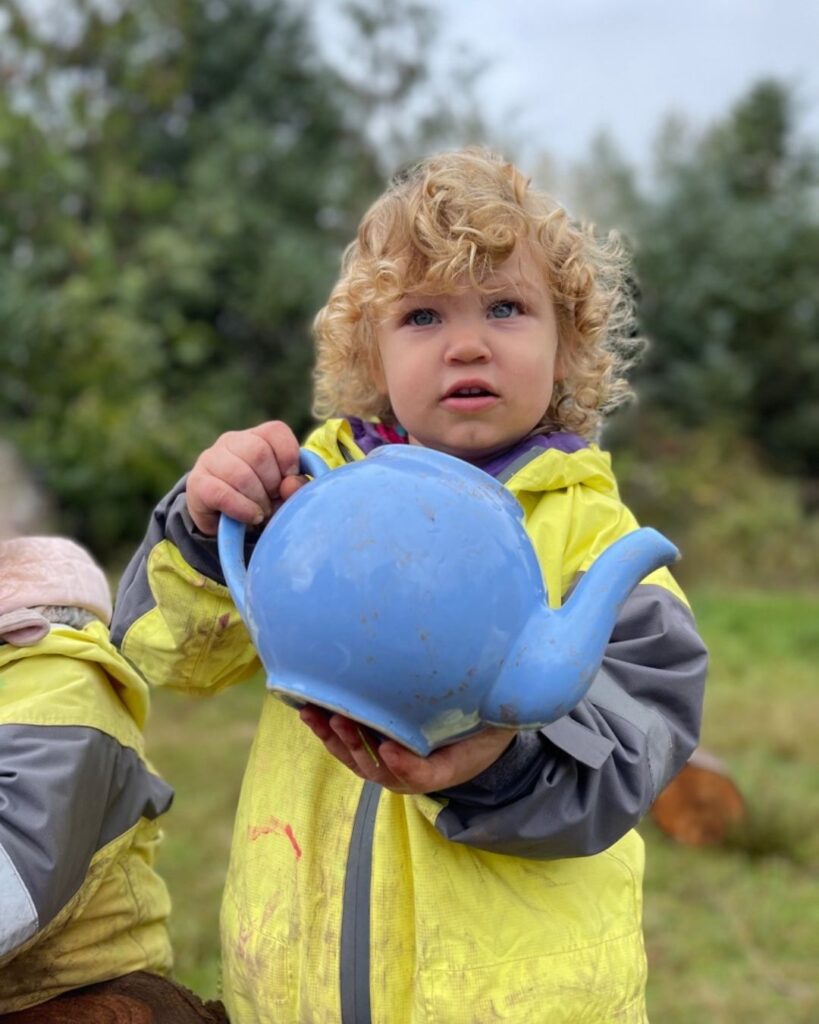
4 Benefits of Sending Your Toddler to Preschool
While there’s a lot to be said for parenting your own child, there’s a lot to be said for exposing them to other situations. Simply existing in the same home bubble day-in and day-out doesn’t prepare them for the real world where they will be asked to interact with others and adapt to different environments.
1. Socialization
Getting along with others is a skill. So is sharing. And problem-solving in a group. And talking. Carrying on a conversation takes practice. Interacting with other children helps develop these vital skills.
2. Exposure to Other Authority Figures
Does your kid listen to you? Okay….does your kid sometimes listen to you, know what you’re saying always, and often drive you bonkers?!?!
In life, you won’t be the only authority figure your kid will encounter. It’s good for them to learn how to follow the directions of other leaders.
3. Exposure to a New Environment
New environments help broaden our world and perspective. The more we are exposed to new things, the easier it is to mentally and emotionally handle new environments. To become more conscious of others. To be open and accepting of differences.
4. Developing a Sense of Independence
Imagine the day when your toddler puts on their own clothes — without you asking. Makes their own peanut butter and jelly sandwich. Picks up their toys!!
All of these actions — and more —are a form of independence. As hard as it can be to imagine our babies growing and not needing us, developing that independence is what allows them to go out in the world and stand on their own two feet…one day.
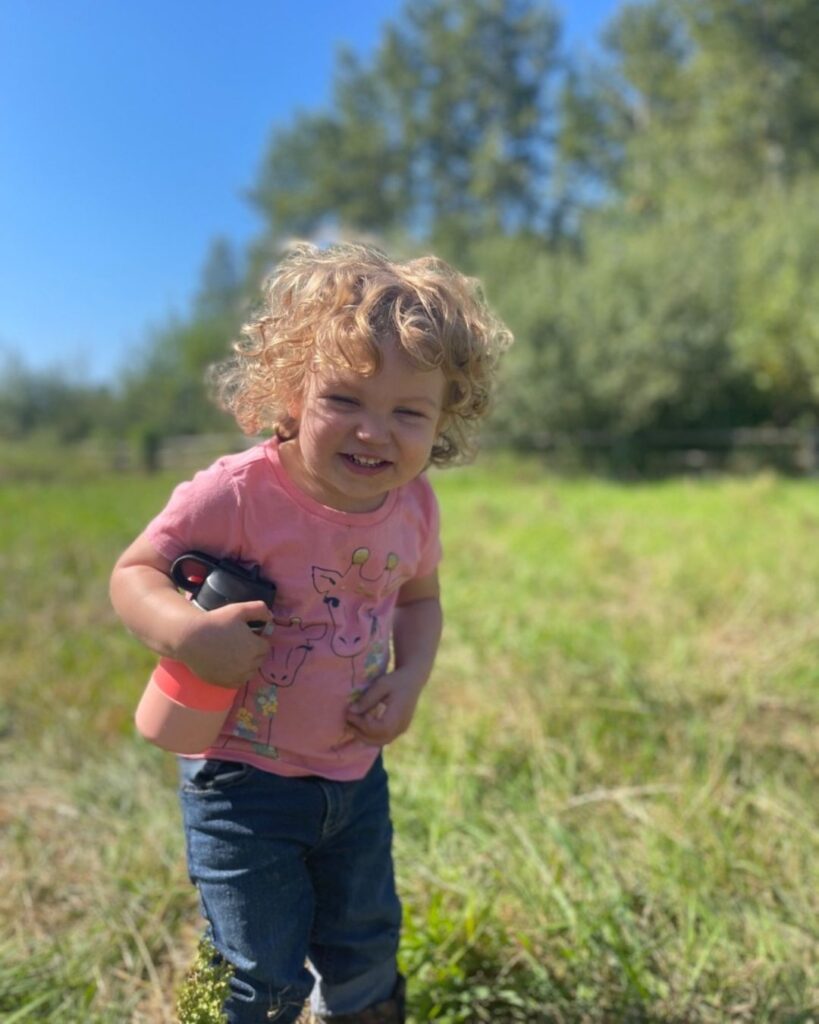
What kind of preschool is best for a toddler?
There are SO many preschools and different types of preschools. Picking the best one is a lot like a mom picking the best diaper bag. Once she picks one, she’s often going to tell you ALL the reasons her decision was the best.
In my ‘expert’ opinion, the best preschool is a place where your kid is safe, happy, and learning; you can afford the tuition; and the hours work with your schedule.
Are Montessori Preschools the Best?
A lot of people certainly believe Montessori preschools are the best. And based on my research, I’m a big fan of them. They promote independent play, creativity, and self-sufficiency through learning activities that are not screen-based.
But many of these lessons can be recreated at home. You can buy kits and Montessori lessons. But fair warning, these can be expensive. Alternatively, there are TONS of online resources for developing Montessori-sec activities at home with everyday (aka affordable) objects.
The Beauty of an Outdoor Nature Preschool
Before our daughter was even born, she was hiking. And after she came, being outside was our saving grace. She was happy. I was happy. And I really wanted her to continue that love of nature even when I wasn’t present.
I also LOVED the idea of her being exposed to animals. I loved that she could be in a space where jumping in mud puddles was celebrated. That she could be surrounded by individuals who loved on her and encouraged her to explore.
And…Covid.
Let’s be honest, it’s a scary time to be alive, let alone be a parent. An outdoor school meant no time indoors and to me, that felt safer.
Foothills Nature School offered all of that and more. We couldn’t be more pleased with our decision. This place is magic.

How to Buy Winter Clothes For Kids
Staying sane as a mom is H.A.R.D. For me, it’s made especially hard when the two of us are cooped up inside all day. While I’ve definitely found some fun indoor activities (like MOHAI), my favorite thing to do with my toddler is exploring the outdoors.
The following outdoor winter kids gear and budget-friendly shopping tips have been gleaned from recommendations made by Pepper’s school, personal experience, and recommendations from fellow mommas.
How many days a week should a toddler be in school?
As with most things when it comes to kids, the appropriate number of days your child should be in preschool depends on your child. For younger kids just getting exposed, 2-3 days a week is often considered a ‘safe’ amount. This can give them the comfort of being home with their primary caregiver the predominant amount of time and start exploring preschool.
As your child gets older, longer stretches at preschool and more days a week (up to 5) allow toddlers to have time to play and learn while at school.
Does Your Toddler Have to be Potty Trained to Go to Preschool?
It totally depends on the preschool. There are definitely preschools that require your child to be potty trained. Ours does not.
And, I’m currently very hopeful that being around other potty trained kids will help Pepper take an interest in potty training. (Fingers crossed!)
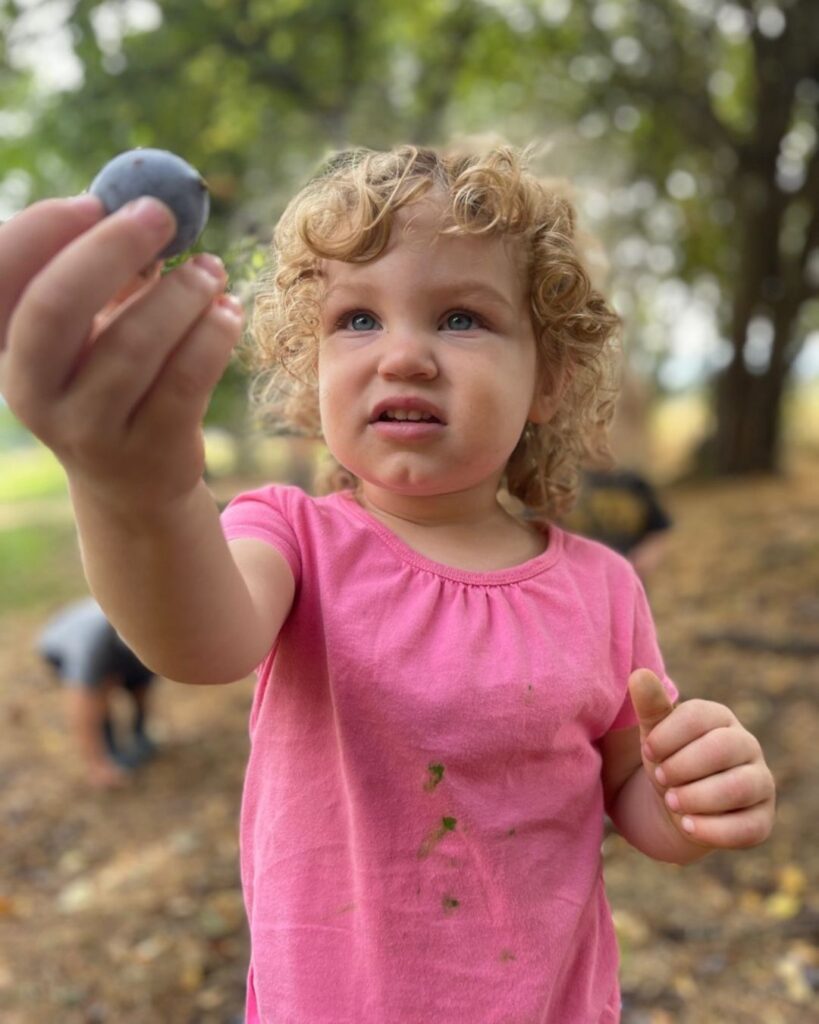
How Do You Know Your Child is Developmentally Ready for Preschool?
I don’t believe early childhood education isn’t all about learning your ABCs. There are a lot of really important skills like communicating, working with others, and learning to unzip their own backpack.
If you’re worried about your child being ready, I suggest talking to the preschool you’re considering. I had several conversations with the woman who runs Pepper’s preschool before she went and then even after. They were incredibly helpful.
And the most exciting thing is seeing how she’s starting to learn and thrive.
Isn’t Preschool Just Child Care?
No. Preschool is not just childcare. There is a DEFINITE difference between preschool and childcare. The most obvious is the international development of your child.
That being said, preschool and childcare are the same, in that someone else is looking after your children. But with childcare, the care provider is focused on keeping your kid safe and happy.
With preschool, the teachers are focused on keeping your kid safe and happy AND providing developmentally appropriate lesson plans. Which is a GAMECHANGER!
How? Take this example for instance. Garrett (my husband) and I were talking about the moss growing in the grass and flowerbeds. It was the first time we’d discussed it and used the word around our daughter. Out of nowhere, she’s at the window pointing to the mold and saying moss.
Come to find out, two weeks prior her school had done an entire section on moss! And she was absorbing it. How cool is that!

